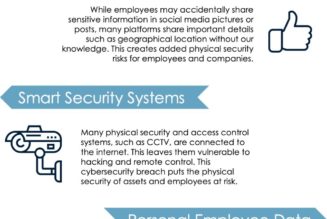Technology has a runaway effect. Through devices and broadband, people can find services, resources and opportunities—and those who have access to it get further ahead. However, there are still billions of people who are being left behind due to a lack of availability and cost of devices. This is the paradox of the digital divide, and it affects communities, societies and economies globally.
The world’s leading international institutions are sounding the alarm. The World Trade Organisation believes levelling the playing field should be a strategic focus for everyone who participates in the digital economy because when such considerable amounts of human potential are left untapped, nobody wins. At the same time, the United Nations affirms that social inequality will be exacerbated unless people all over the world are empowered with digital literacy.
The global digital economy needs strengthening
At a glance, digital inclusion is improving; 2019 proved to be a turning point, with over half the world having internet access. However, because the internet has become indispensable to our way of life, that still leaves a staggering 3.7 billion people without internet access.
/* custom css */
.tdi_3_102.td-a-rec-img{ text-align: left; }.tdi_3_102.td-a-rec-img img{ margin: 0 auto 0 0; }
And these digital deserts aren’t uncommon: underserved and unserved communities are even in developed countries like the U.S. Regardless of where in the world you are, if there are rural or low-income communities, there’s likely a lack of reliable digital connectivity.
It comes as no surprise that this disproportionately affects developing nations, where only 47% of people are connected, compared to 87% of people in the developed world. In the least developed nations, that number is only 19%.
In South Africa—a region where the lines between the developed and developing worlds are often blurred, as modern metropolises stand side by side with poorer neighbourhoods and rural villages—56.3% of the population has access to the internet according to Statista. This share is projected to grow to 62.3 percent in 2025. But this access isn’t evenly distributed.
Across the world, one of the leading barriers is the cost of both devices and connectivity. Without it, organisations can’t reach those they serve, and those individuals can’t reach organisations. IDC predicts that the global economy will reach “digital supremacy” by 2023, in which more than half of the global GDP will be driven by digitally-enabled enterprises—with dire implications for those that can’t compete.
Digital technology is also critical to staying connected and productive in times of upheaval or crisis. During the COVID-19 pandemic, global internet usage went up 70%, the use of mobile apps doubled, and streaming services have seen massive gains—and organisations with robust online operations and reliable internet access could continue to grow and thrive.
Meanwhile, other organisations—including small businesses and critical in-person services—suffered from their lack of digital adaptability. One of the most prevalent and essential in-person services is the education system, and while school has moved online for some, UNICEF calculates that 154 million children have lost access to their learning resources.
According to the World Economic Forum, the digital divide is widened between higher and lower demographic groups by the fact that data in South Africa is of the most expensive in the world.
An example of this is, on 30 March 2020 Africa Teen Geeks (ATG) launched the STEM Digital Lockdown school in partnership with the Department of Basic Education. It has reached over 500,000 learners across the country through the MsZora platform – an artificial-intelligence-based educational platform offering free live classes by qualified teachers and is available to all South Africans.
However South Africa has over 12 million learners in its basic education system and only 500,000 children were able to access these classes, a prime example of inequality and access to internet between the haves and have nots.
Not just access to the internet, but access to skills
Digital access is an especially big concern when it comes to education, because there are two key ways in which its impacts are immediately felt. First, there are “hard inequalities”—for example, a lack of infrastructure, internet connection, communication technologies, devices and other tangible assets that limit students’ ability to learn.
Secondly, there are resulting “soft inequalities”—including the lack of knowledge, skills and opportunities that prevent youth from fully participating in the digital economy and building better futures.
It’s not just digital devices and connectivity that are necessary; it’s the digital training and literacy that empowers individuals to take full advantage of these tools. We need to look beyond internet access if we want to enable digital inclusion.
A global push for digital inclusion
Global upheavals can widen digital gaps, as we’ve seen in the case of COVID-19—but sometimes, it takes a disruption to result in a call to action.
In South Africa the Department of Basic Education is currently developing the Coding & Robotics curriculum to close the digital skills gap between what skills are available and what the industry will be looking for.
What can businesses and non-governmental organisations do to bring more people into the digital economy? One of the most meaningful and effective ways is by empowering innovators and non-profits to make a direct difference in people’s everyday lives, and we concentrate our efforts on driving education, healthcare and economic opportunity.
By Natasha Reuben, Head of Transformation at Dell Technologies South Africa
/* custom css */
.tdi_4_324.td-a-rec-img{ text-align: left; }.tdi_4_324.td-a-rec-img img{ margin: 0 auto 0 0; }









